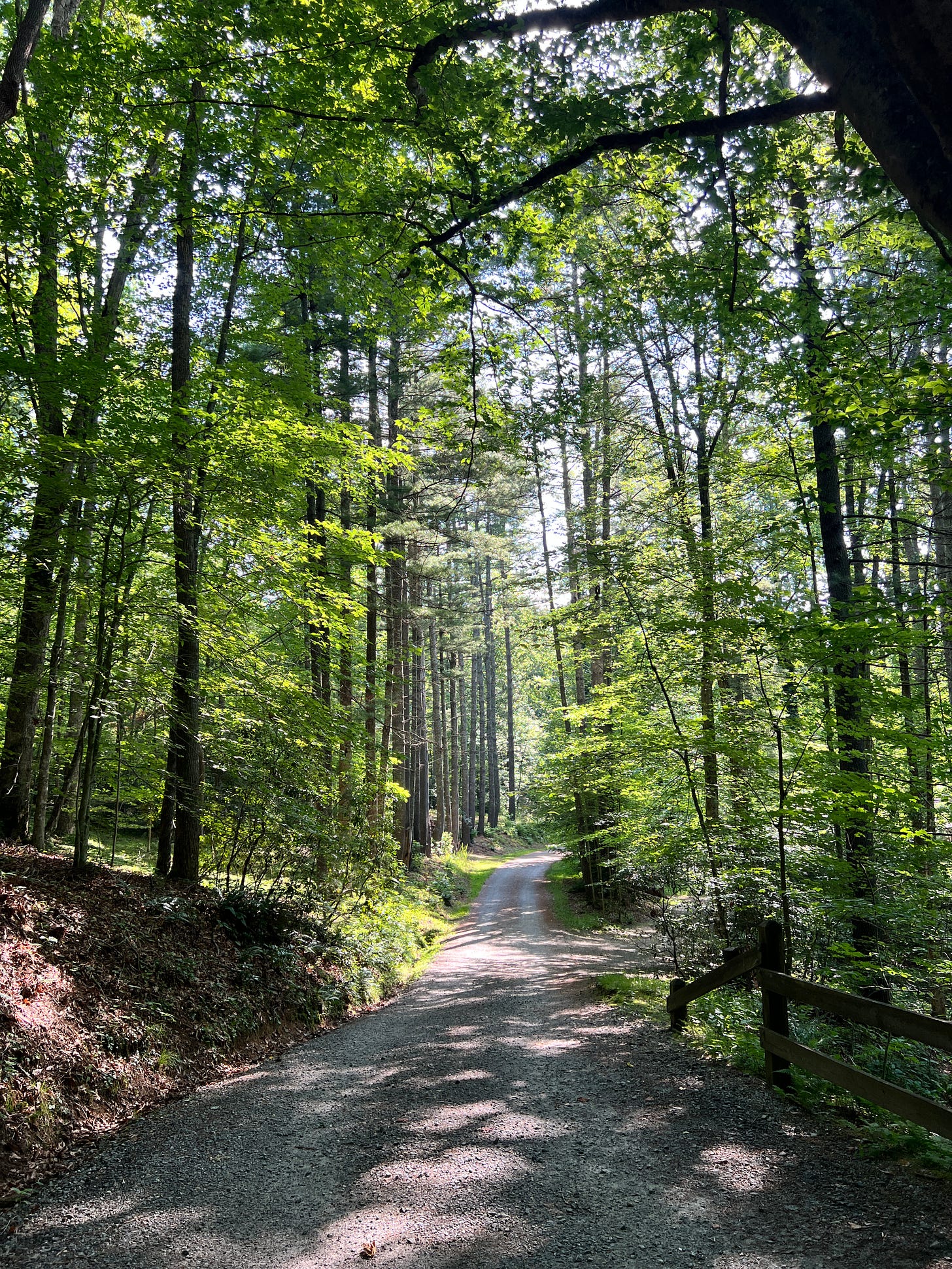(Our beautiful little lane)
There is a season, finally, when the urgency fades. When the calendar is no longer a tyrant, when titles lose their shine, and applause echoes more faintly than the trilled birdsong of the Eastern Towhee in the morning. I find myself on the edge of that season now. Not quite vanished from the world, but not tethered to it in the same way either. I am entering my vanaprastha phase—the third act in the Hindu model of life, when one turns toward the forest, both literally and metaphorically.
Vanaprastha means “retiring to the forest,” but I take it to mean something more spacious: a conscious release from worldly striving. Not renunciation, but refinement. Not exile, but expansion. It is the stage after householder, after the long years of doing and tending and proving and building. The work has been done, perhaps even overdone. What now?
There was no single moment that marked this transition for me—no gong, no grand epiphany. Rather, it arrived like the changing of light in late afternoon. A slow golden slanting, subtle but unmistakable. I began to crave quiet. I stopped needing to be seen. I felt the first, delicious pull toward the inward path.
In earlier years, I had lived by lists and alarms and performances. I was excellent, productive, responsible—words that won approval and often stole my peace. I held so many roles, some of them hard-won, others inherited or expected. Now, I am setting them down like heavy bags after a long journey. I am learning the grace of unburdening.
But this is not a retreat from life; it is a turn toward life in its purest form. I want to read what nourishes, not what informs. I want to walk until the thoughts quiet. I want to listen more than speak. And when I do speak, let it be from the deeper well, the place below ego and above complaint.
This phase is not without its griefs. There is mourning involved in letting go of one’s centrality—in the family of humans, in the room, in the mirror. There are days I feel invisible, unneeded, uncertain. But that too is part of the forest. Invisibility becomes a kind of freedom. Being unneeded is not the same as being unloved. And uncertainty? It is the price of any true transformation.
In vanaprastha, I am not vanishing—I am distilling. What remains is truer. My friendships are fewer but deeper. My days are less full but more sacred. I move slower, but with more awareness. I find myself drawn to simplicity, to prayer without language, to the kind of beauty that does not announce itself.
I know this is not a common map in the modern West, where we resist aging with creams and euphemisms and forced relevance. But I want to age as the trees do—firmly rooted, quietly growing, letting go when it is time. I want to live the questions I once rushed to answer. I want to be an elder, not just older.
This is my vanaprastha—not a place, but a posture. A devotion to stillness, to essence, to what endures. I will not disappear. But I will not hustle to be seen. I will tend a smaller garden with greater care. I will sit by the fire, not to warm myself alone, but to offer warmth to others when they come near.
And when they ask what I’m doing these days, I may simply smile and say, “I’m walking into the forest. I will let you know what I find.”
Love,
Patti






Patti, you are one remarkable human who puts voice to the journey many are trying to navigate. Your observations fuel my quest for quiet, this posture of vanaprastha suits me as I strive to let go of what was and welcome what simply is. I’ll seek it in the woods and whisper my gratitude.
It is a good exposition of the Indian concept of Vanprastha metaphorically highlighting that it is a change in mindset, but not a change in place.